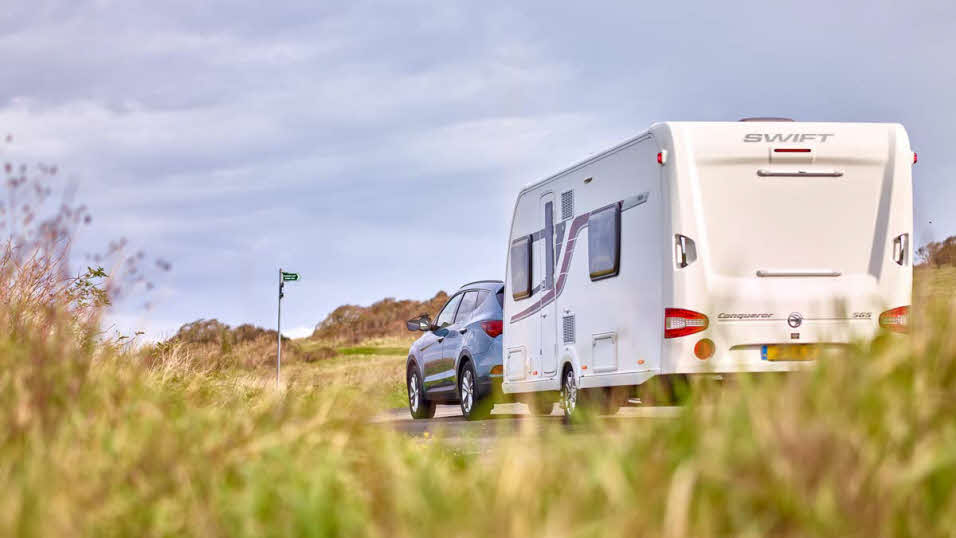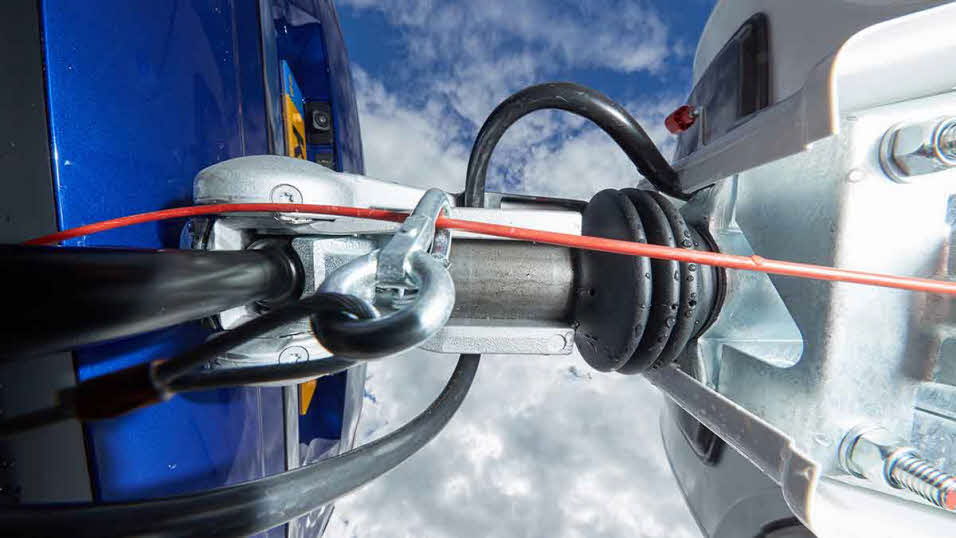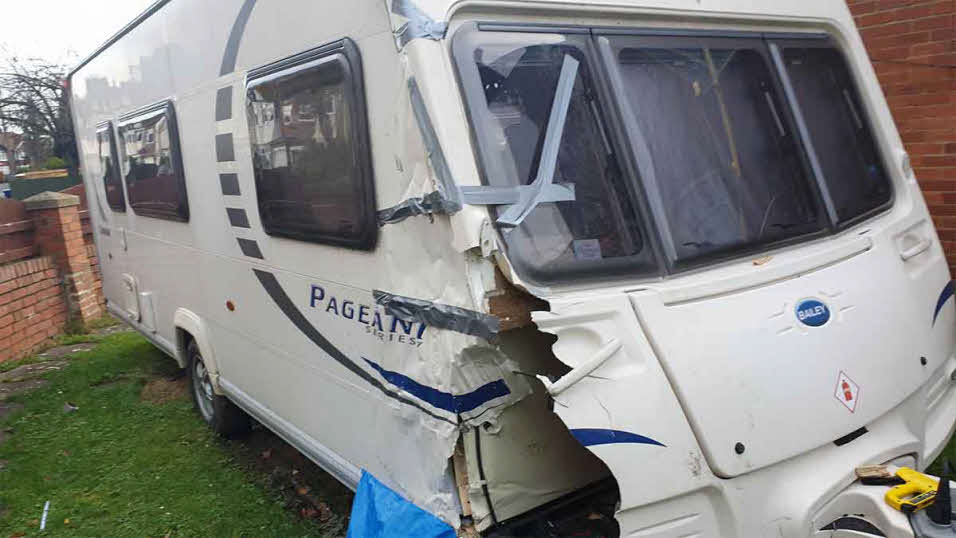Caravan Cover
Protect your caravan, whether you're at home or on holiday with cover designed for your needs.
View cover optionsDetachments can be a curse for all types of tourers, so we’ve put together some helpful, practical advice on how to prevent a detachment.
Question:
Who do you feel is more likely to have a detachment accident? Experienced caravanners or those members new to caravanning?
Answer:
Perhaps surprisingly, our claims data suggests that it is those with many years of caravanning experience who are more likely to suffer a detachment, although some new caravanners do too!

As anyone who has ever towed a caravan will appreciate, there’s a small chance of a detachment when towing. Some of you may have even been unfortunate enough to experience one and have suffered the inconvience of them, with detachments often leading to some of the highest-value claims.
Detachments aren’t just a curse for new tourers either, with experienced caravanners commonly suffering similar issues.
We’ve put together some helpful, practical advice on how to prevent a detachment.
So what is a detachment?
A detachment is when the hitch of the caravan has separated from the towball of your towing vehicle whilst in use.

How are these claims caused?
The vast majority of claims are caused by not hitching up correctly. Detachment will often happen immediately as you pull away, with a relatively low risk of serious damage or safety. However, if your noseweight (downward load on the towball) is reasonably high, the hitch can sit on top of the towball until you reach significant speed.
Whereas a low speed detachment could just damage your towing electrics connection, which would mean a repair before you are able to tow again, a detachment at speed might not just cause serious damage to your caravan and other vehicles, it could also cause a collision resulting in serious injuries or even worse.
How much can a detachment claim cost?
Although the average claim is around £5,000, a detachment claim could cost hundreds of thousands of pounds.
Why are detachment claims so costly?
Sometimes the damages to your outfit can result in your caravan being written off. Larger claims occur if a third party is involved, this can mean other people and/or their property. These types of accidents can be extremely serious, as a person could be injured or even killed. Tragically, such incidents have happened, with enormous emotional cost, irrespective of the financial implications. It’s worth noting that drivers may be prosecuted in such cases as well.

How can I reduce the risk of my caravan becoming detached?
Our Technical team has provided a handy 7-point ‘Yes’ checklist to help minimise the risk of detachments.
Visit our Technical Advice pages or contact our Technical Team on 01342 336 611 for more information on a wide range of advice designed to answer all your questions and to help you get on your way as comfortably and safely as possible.
Don't forget, to check out the Club's variety of training courses. They are not only useful for members new to touring but also for those who may want a refresher course or just a boost in confidence.